CO2-neutral process heat generation
Study commissioned by the Federal Environment Agency (Umweltbundesamt), 1 June 2019 til end of May 2023
Project description
The German government is pursuing the goal of reducing greenhouse gas (GHG) emissions in Germany by 80 to 95% below 1990 levels by 2050, thereby helping to protect the climate. The setting of interim targets and the use of various policy instruments contribute to the achievement of this goal. The goal is to achieve a 40% reduction in greenhouse gas emissions below 1990 levels by 2020. Furthermore, as part of the energy concept, the German government has decided to reduce primary energy consumption by 20% by 2020 and by 50% by 2050 compared to 2008 levels. For far-reaching decarbonization, the contribution of industry in the form of greatly reduced emissions is indispensable. A reduction in Germany’s GHG emissions of 80–95% by 2050 also requires a similarly high reduction from the industrial sector.
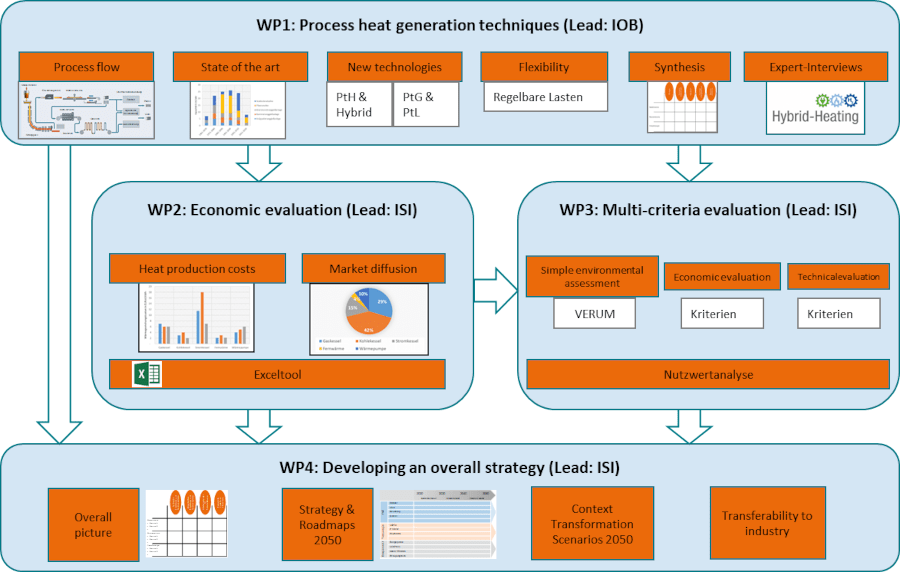
Depiction of the work packages (WP) with their respective main topics as well as WP management and information flow
The industrial sector had GHG emissions of 189 million tons in 2015. Of these, 127 million tons were energy-related emissions and 62 million tons were process- and product-related emissions. Energy-related emissions are almost exclusively attributable to the generation of process heat in almost all industrial sectors. In the manufacturing sector, the majority of energy requirements have so far been met by fossil fuels and electricity from conventional energy sources.
The generation of process heat in industrial furnaces and steam generators is very application-specific and depends on the particular conditions and requirements of the different production processes. The temperature levels and the mode of operation of the plants differ significantly between the applications. According to the current state of science, only isolated approaches to solutions for the use of energy from fluctuating renewable energy sources exist in the field of industrial furnace technology. Although technical processes are conceivable for all areas of process heat generation that allow a conversion from fossil energy sources to (regenerative) Power-to-Heat (PtH) or Power-to-Gas (PtG)/ Power-to-Liquid (PtL), these processes are still far from economic viability. This is partly due to the comparatively high electricity prices, which is why these technologies are currently only used for niche applications or are still in the technical development stage. In addition to cost-effectiveness, other properties of the energy sources are equally important for companies when making investment decisions. These include, for example, security of supply, quality, the effort required for on-site processing, local pollutant emissions or the precision with which the combustion process can be controlled. New concepts for CO2-neutral process heat generation must be superior to existing supply technologies in these factors in order to become attractive to companies and achieve broad market introduction.
The objectives of the project are to determine the current state of the art and the need for further action in the area of research and development for the use of CO2-neutral process heating systems for the respective industries and areas of application. A further objective is to estimate the economic viability of exemplary, particularly relevant technologies. In addition, the technologies identified will be evaluated on the basis of technical, economic and ecological criteria in order to derive initial recommendations for their future application that are as holistic as possible. Finally, an overall picture of the current status and essential elements of an overall strategy for the future widespread use of CO2-neutral process heating systems in the industrial sector will be developed on the basis of the findings obtained.
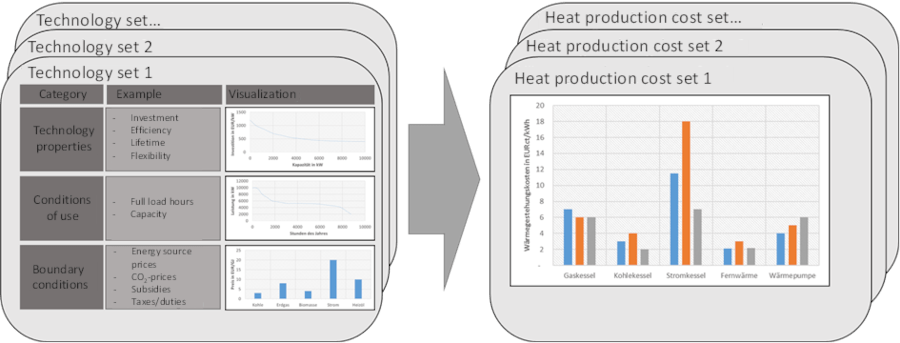
Model scheme of the economic evaluation
Project goals
- What is the current state of the art of process heat generation in the selected industries?
- Which PtH, PtG/PtL plants and processes are available, what is the development status, how is the substitution of fossil reference technologies to be technically assessed and what is the need for action?
- How economical are PtH, PtG/PtL plants compared to conventional reference plants?
- How are PtH, PtG/PtL technologies to be evaluated under holistic consideration of ecological, economic and technical criteria in comparison to the fossil reference technology?
- How is the use of PtH, PtG/PtL for process heat generation to be classified in an overall picture and strategy?
These questions are addressed on the basis of 15 selected technologies from various sectors. A time perspective up to the year 2050 is taken.
Project participants
Contact
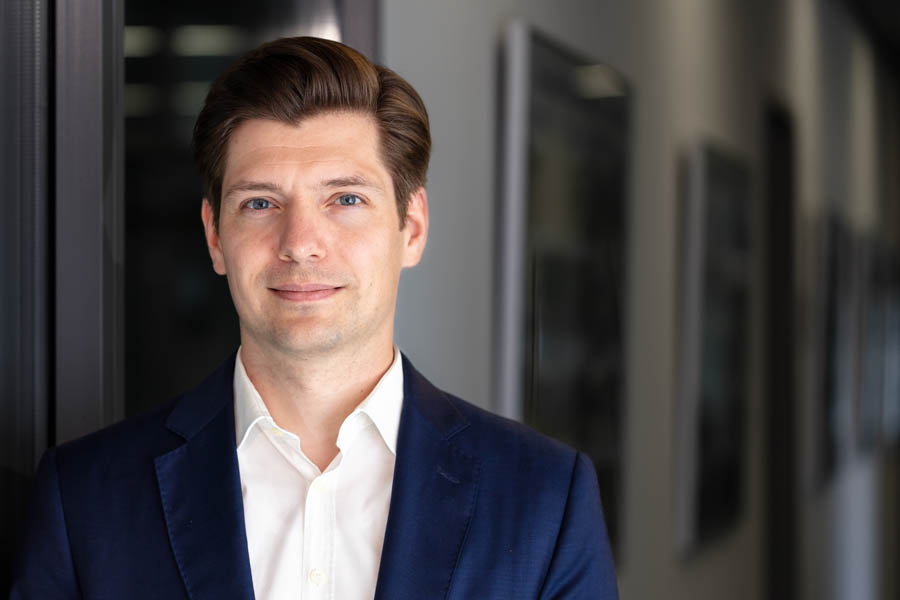
Dr.-Ing. Christian Schwotzer
+49 241 80–26068
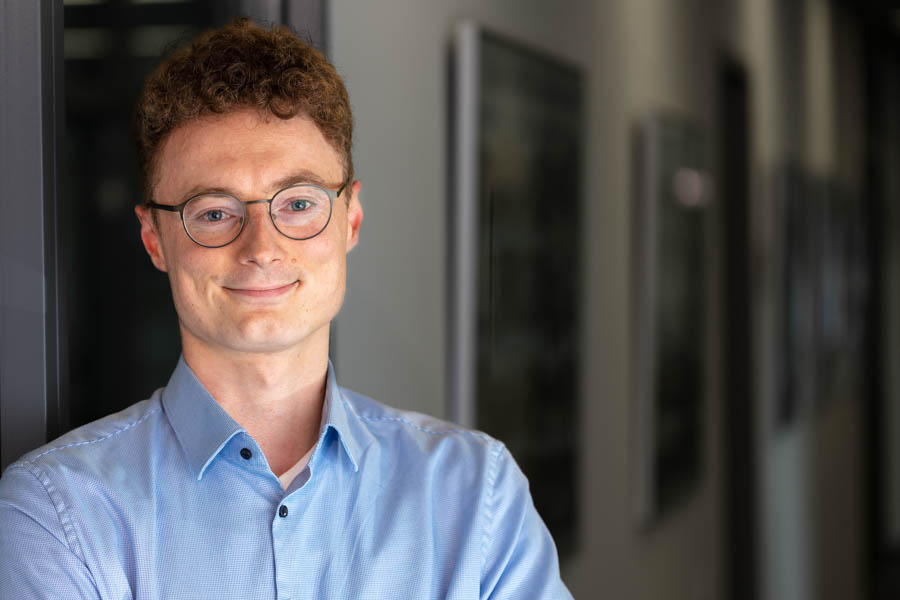
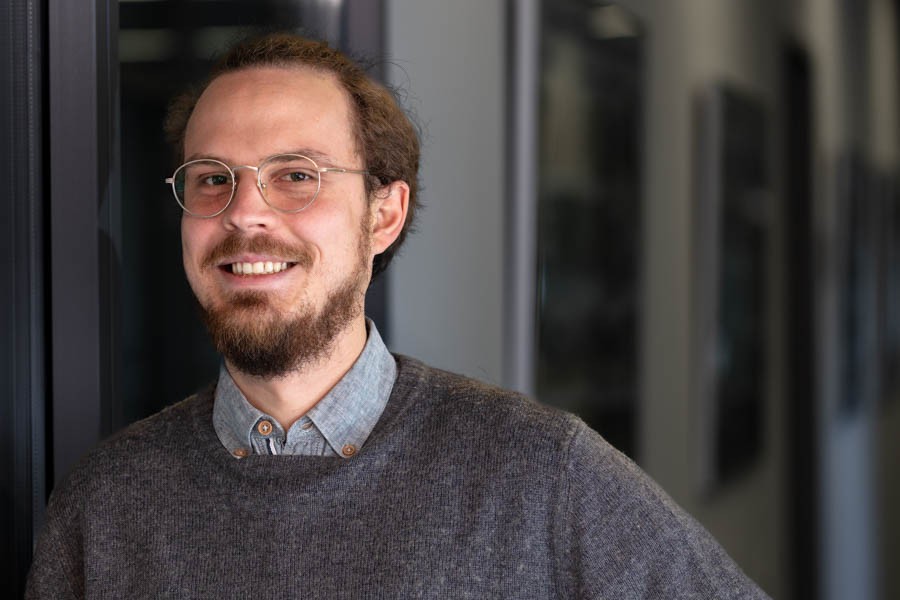
Carsten Gondorf, M.Sc.
+49 241 80–26074
Funding

